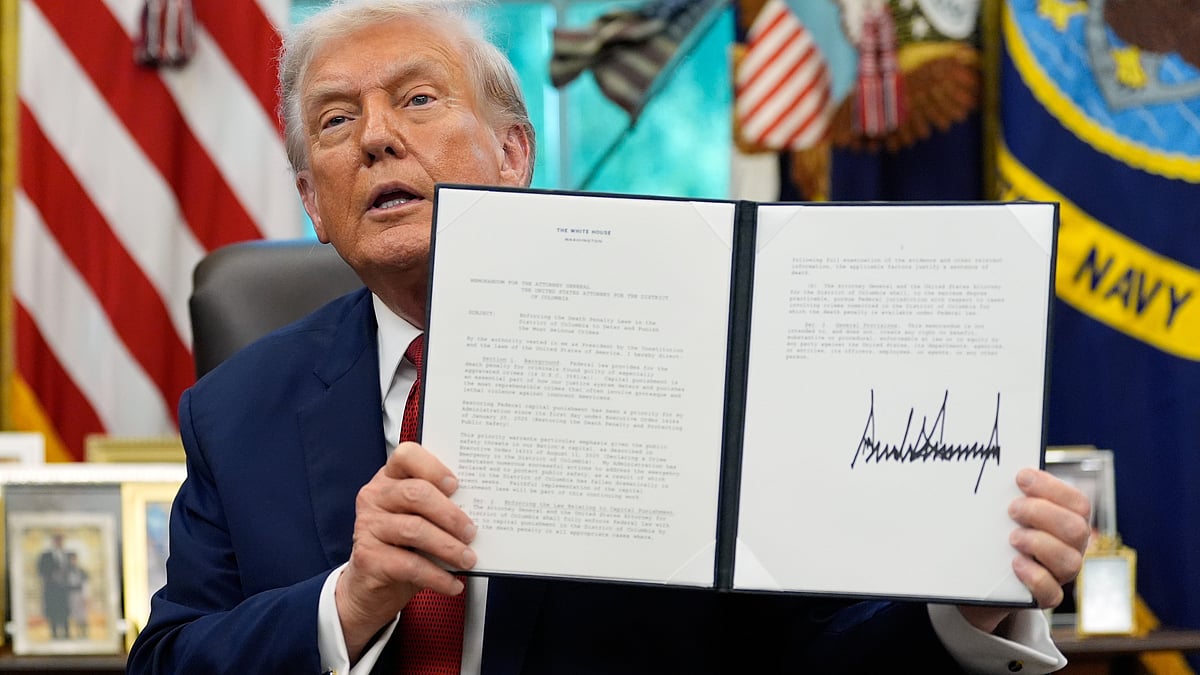World
Donald Trump imposes 100% pharma tariffs, jolting India’s drug sector
India supplies over 45 per cent of generic drugs and 15 per cent of biosimilars used in the US

In a startling move, US President Donald Trump on Thursday, 25 September, announced tariffs of up to 100 per cent on imports of branded and patented pharmaceutical drugs, effective from 1 October 2025.
The announcement, made via a post on Truth Social, threatens to significantly impact the Indian pharmaceutical sector, which heavily relies on exports to the United States.
“Starting 1 October 2025, we will be imposing a 100 per cent tariff on any branded or patented pharmaceutical product, unless a company is building their pharmaceutical manufacturing plant in America,” Trump wrote. He clarified that “building” would be defined as either “breaking ground” or “under construction,” meaning products from plants already under construction in the US would be exempt from the tariff.
The tariff announcement comes as part of a wider trade protection strategy. Alongside pharmaceuticals, Trump also imposed:
50 per cent duty on kitchen cabinets and bathroom vanities
30 per cent duty on upholstered furniture
25 per cent duty on heavy trucks and parts
Published: undefined
“Furniture and cabinetry are flooding the United States. Heavy trucks and parts are hurting our own producers. Tariffs are needed — for national security and other reasons,” Trump added, emphasizing his focus on protecting American industries.
Impact on Indian pharmaceutical exports
The timing of this move is critical for India. The US is India’s largest export market for pharmaceutical products. In FY24, of India’s $27.9 billion worth of pharma exports, $8.7 billion (31 per cent) went to the US, according to the Pharmaceuticals Export Promotion Council of India (Pharmexcil). In the first half of 2025, India exported another $3.7 billion worth of pharmaceutical products to the US.
India supplies over 45 per cent of generic drugs and 15 per cent of biosimilars used in the US. Major Indian firms such as Dr Reddy’s, Sun Pharma, Aurobindo Pharma, Zydus Lifesciences, and Gland Pharma reportedly earn 30–50 per cent of their total revenue from the American market.
Although the new tariffs are primarily targeted at branded and patented drugs — a market dominated by multinational corporations — the move has introduced uncertainty over complex generics and specialty medicines from India, leaving exporters wary of potential disruptions.
The announcement follows earlier US trade measures, including 50 per cent tariffs on certain Indian imports and a 25 per cent penalty on continued Russian oil purchases, marking a continuation of Trump’s aggressive protectionist stance.
Industry analysts caution that if the tariffs extend beyond branded products, Indian pharmaceutical companies could face a severe revenue hit, potentially prompting them to explore local manufacturing in the US to maintain market access.
With IANS inputs
Published: undefined
Follow us on: Facebook, Twitter, Google News, Instagram
Join our official telegram channel (@nationalherald) and stay updated with the latest headlines
Published: undefined